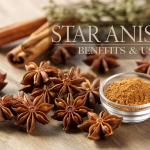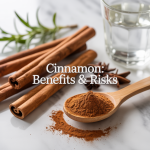Mallow Tea: Health Benefits, Uses, and Possible Side Effects
Mallow tea has been quietly gaining attention as a gentle herbal remedy with impressive healing properties. This soothing beverage, made from the leaves and flowers of the mallow plant, offers natural relief for everything from digestive troubles to respiratory issues.
This guide is perfect for herbal tea enthusiasts, health-conscious individuals, and anyone curious about natural wellness alternatives who wants to understand what mallow tea can do for their health.
We’ll explore the science-backed health benefits of mallow tea, including its anti-inflammatory and soothing properties that have made it a trusted remedy for centuries. You’ll also learn practical therapeutic uses and applications, from treating sore throats to calming upset stomachs. Finally, we’ll cover the potential side effects and safety considerations you should know before adding this herbal tea to your daily routine.
Understanding Mallow Tea and Its Origins
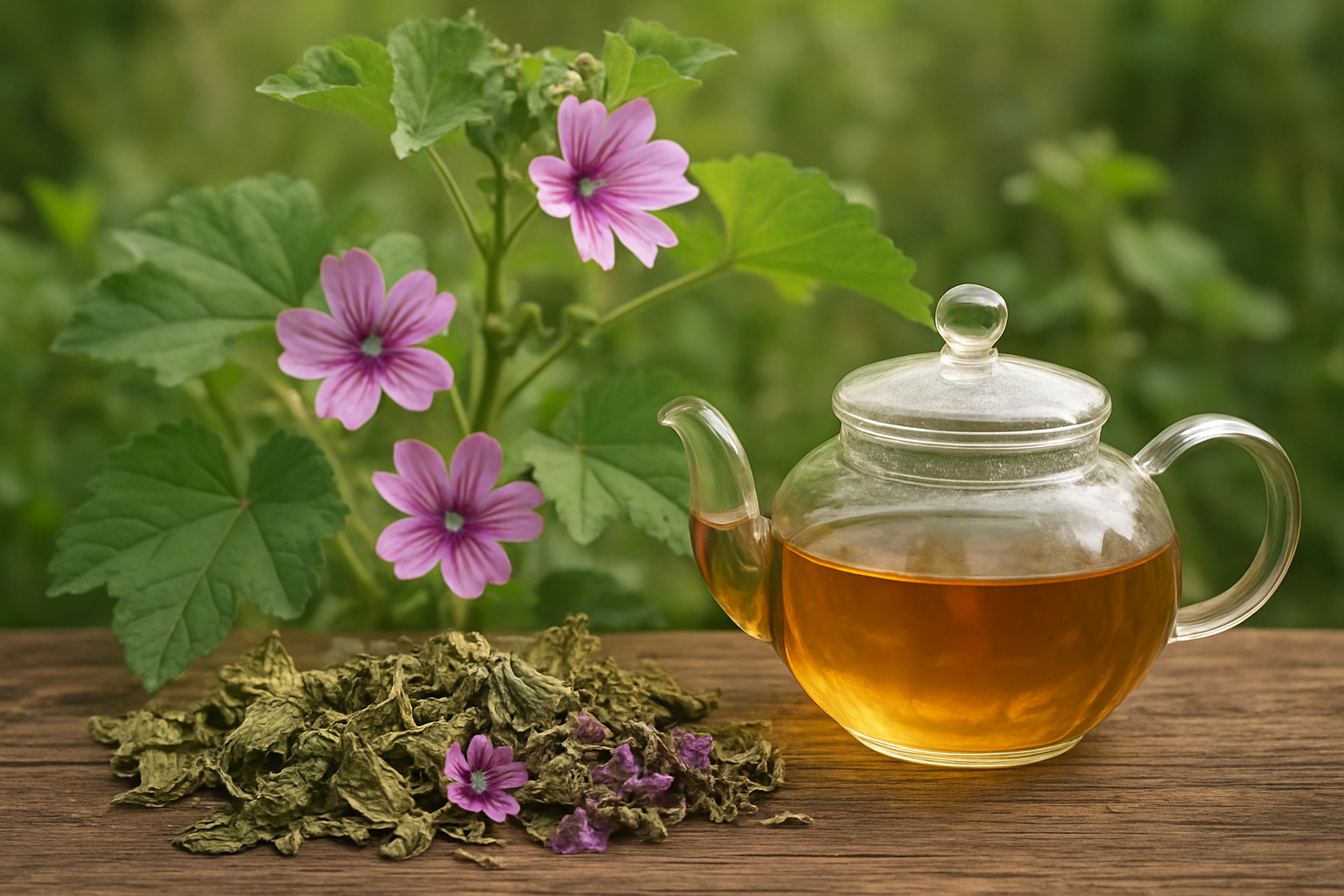
What is Mallow Tea and How It’s Made
Mallow tea is a soothing herbal beverage brewed from the leaves, flowers, and sometimes roots of various mallow plants. The common mallow (Malva sylvestris) and marshmallow (Althaea officinalis) are the most popular varieties used for tea preparation. The brewing process extracts mucilage, a gel-like substance that gives the tea its characteristic smooth, slightly viscous texture and therapeutic properties.
Making mallow tea involves steeping dried or fresh plant material in hot water for 10-15 minutes. The leaves and flowers release their beneficial compounds, creating a mild-tasting brew with subtle earthy and floral notes. Cold preparation methods are also common, where plant material is soaked in room temperature water for several hours, which better preserves the delicate mucilage content.
The preparation varies depending on the intended use. For digestive support, stronger concentrations are preferred, while lighter brews work well for daily consumption. Fresh mallow can be harvested from spring through early fall, though dried varieties remain potent year-round when properly stored.
Historical Uses Across Different Cultures
Mallow has been cherished across civilizations for thousands of years. Ancient Egyptians cultivated marshmallow along the Nile River, using it both as food and medicine. They created poultices from the roots to treat wounds and inflammation, while the leaves were consumed to soothe digestive troubles.
Greek and Roman physicians, including Hippocrates and Pliny the Elder, documented mallow’s healing properties extensively. They prescribed it for respiratory ailments, skin conditions, and digestive disorders. The name “Althaea” comes from the Greek word “altho,” meaning “to heal,” reflecting its medicinal reputation.
Traditional Chinese Medicine incorporated mallow species for cooling inflammation and moistening dry conditions. European folk medicine traditions passed down recipes for mallow preparations through generations, with medieval monasteries maintaining dedicated mallow gardens for their infirmaries.
Native American tribes across North America discovered local mallow species independently, using them for similar therapeutic purposes. They created teas, poultices, and food preparations, often combining mallow with other native plants for enhanced effects.
Types of Mallow Plants Used for Tea
Several mallow species offer unique characteristics for tea preparation:
Common Mallow (Malva sylvestris) features heart-shaped leaves and purple-pink flowers. This variety grows abundantly in temperate regions and produces a light, refreshing tea with moderate mucilage content. The flowers add visual appeal and subtle sweetness to blends.
Marshmallow (Althaea officinalis) contains the highest concentration of mucilage, making it ideal for therapeutic applications. The roots are particularly prized, though leaves and flowers also make excellent tea. This species produces a more viscous, coating beverage.
High Mallow (Malva sylvestris var. mauritiana) grows taller than common mallow and offers similar properties with slightly different flavor profiles. The larger leaves provide generous yields for tea production.
Musk Mallow (Malva moschata) produces delicate pink or white flowers and finely divided leaves. This variety creates a more aromatic tea with subtle musky undertones.
| Plant Type | Mucilage Content | Flavor Profile | Best Parts for Tea |
|---|---|---|---|
| Common Mallow | Moderate | Mild, earthy | Leaves, flowers |
| Marshmallow | High | Smooth, neutral | Roots, leaves |
| High Mallow | Moderate | Similar to common | Leaves, flowers |
| Musk Mallow | Low-moderate | Aromatic, floral | Leaves, flowers |
Regional variations exist worldwide, with each culture favoring local mallow species that adapt best to their climate and growing conditions. Wild harvesting and cultivation practices have preserved these traditional tea varieties for modern use.
Proven Health Benefits of Mallow Tea
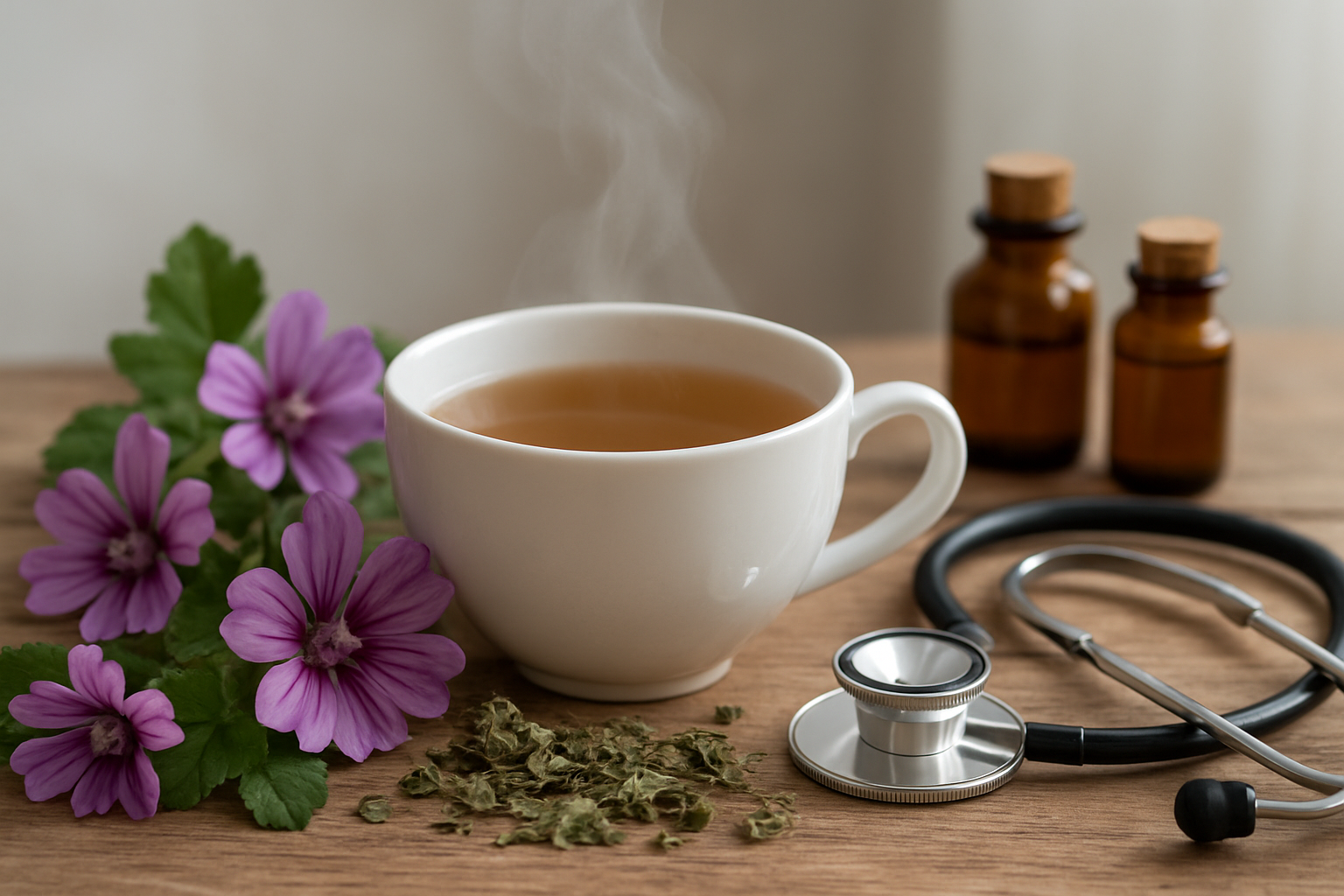
Soothes Digestive Issues and Stomach Inflammation
Mallow tea works wonders for digestive health thanks to its high mucilage content. These gel-like compounds coat the digestive tract, creating a protective barrier that reduces irritation and inflammation. When you drink mallow tea, it helps calm an upset stomach, reduces acid reflux symptoms, and eases the burning sensation that comes with gastritis.
The anti-inflammatory properties of mallow make it particularly effective for people dealing with inflammatory bowel conditions. The tea helps reduce swelling in the intestinal lining while promoting healing of damaged tissues. Many people find relief from symptoms like cramping, bloating, and irregular bowel movements after incorporating mallow tea into their daily routine.
Research shows that mallow’s soothing compounds can help regulate digestive function by supporting healthy gut bacteria and improving nutrient absorption. The tea also stimulates the production of protective mucus in the stomach, which serves as a natural defense against harmful acids and irritants.
Relieves Respiratory Problems and Cough
The same mucilage compounds that benefit digestion also work magic on respiratory issues. Mallow tea acts as a natural expectorant, helping to loosen and expel mucus from the lungs and throat. This makes it incredibly valuable for treating persistent coughs, bronchitis, and other respiratory conditions.
When you drink warm mallow tea, the steam helps open airways while the active compounds work to reduce inflammation in the respiratory tract. The tea’s demulcent properties create a soothing film over irritated throat tissues, providing immediate relief from scratchiness and pain.
Clinical studies have shown that mallow can significantly reduce cough frequency and intensity. The anti-inflammatory effects help calm swollen airways, making breathing easier for people with asthma or chronic respiratory conditions. Many herbalists recommend mallow tea as a gentle alternative to harsh cough suppressants, especially for children and elderly individuals.
Supports Skin Health and Wound Healing
Mallow tea offers remarkable benefits for skin health when consumed regularly or applied topically. The plant’s high levels of antioxidants, including vitamins A and C, help protect skin cells from damage caused by free radicals and environmental stressors.
The anti-inflammatory compounds in mallow tea can help reduce skin redness, swelling, and irritation associated with conditions like eczema, psoriasis, and dermatitis. When applied as a cooled compress, the tea provides immediate relief from sunburn, insect bites, and minor cuts or scrapes.
The mucilage content plays a key role in wound healing by creating a moist environment that promotes faster tissue regeneration. This natural healing accelerator helps reduce scarring while keeping wounds clean and protected from bacterial infection. Many people use mallow tea compresses to treat acne, as the antimicrobial properties help eliminate bacteria while reducing inflammation.
Reduces Inflammation Throughout the Body
Mallow tea contains powerful anti-inflammatory compounds that work systemically to reduce inflammation throughout the body. These bioactive substances help inhibit the production of inflammatory markers, providing relief from chronic inflammatory conditions like arthritis, joint pain, and muscle soreness.
Regular consumption of mallow tea can help lower C-reactive protein levels, a key indicator of systemic inflammation. This reduction in overall inflammation may contribute to better cardiovascular health, improved immune function, and reduced risk of chronic diseases.
The flavonoids and phenolic compounds in mallow tea work together to neutralize inflammatory pathways at the cellular level. This makes the tea particularly beneficial for people dealing with autoimmune conditions or chronic pain syndromes. Many users report significant improvements in joint mobility and reduced morning stiffness after drinking mallow tea consistently for several weeks.
Therapeutic Uses and Applications
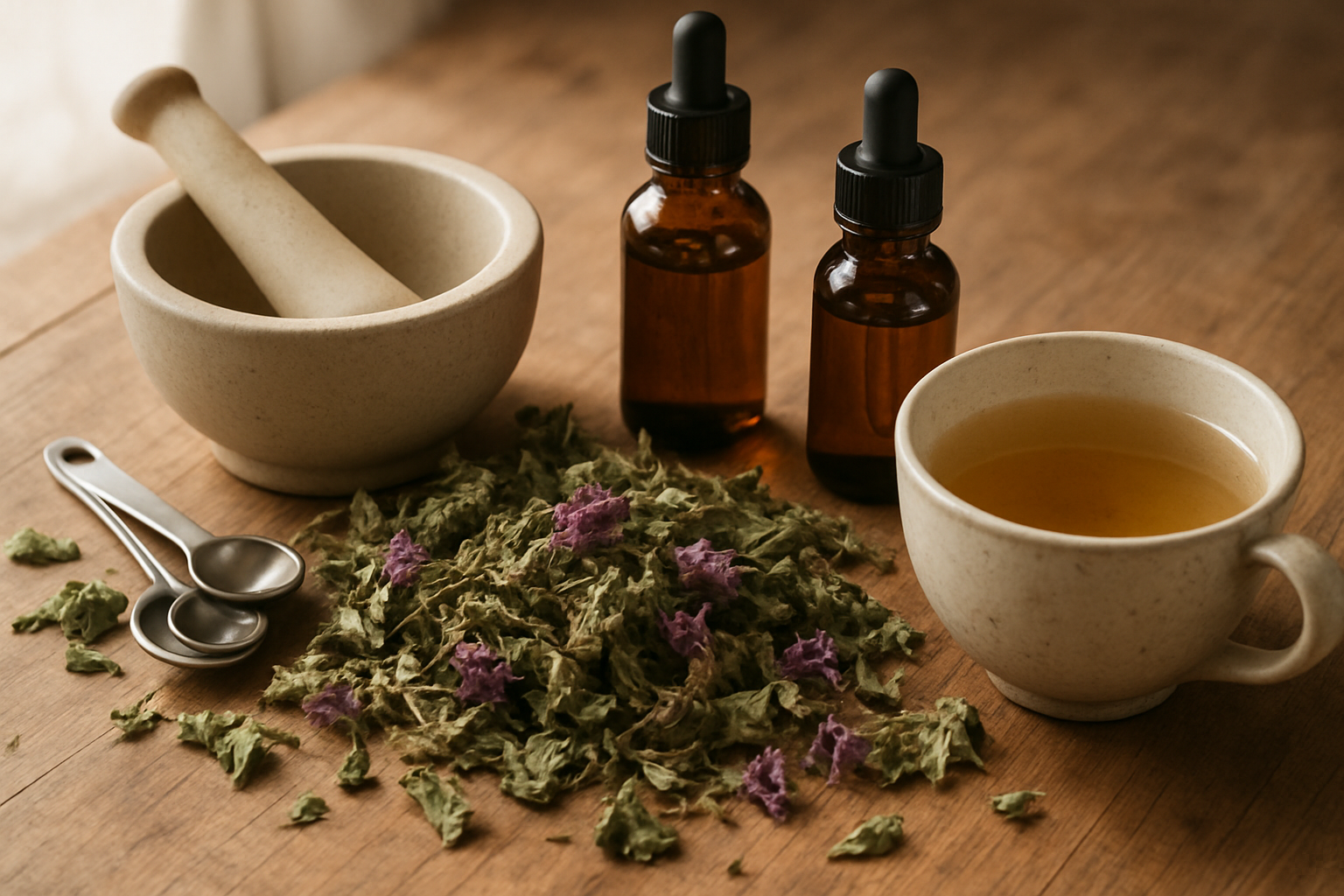
Natural Remedy for Sore Throat and Mouth Ulcers
Mallow tea shines as a traditional remedy for throat irritation and oral discomfort. The mucilage compounds in mallow leaves create a protective coating over inflamed throat tissues, reducing pain and irritation. When gargled warm, mallow tea can soothe scratchy throats caused by colds, allergies, or overuse of vocal cords.
For mouth ulcers and canker sores, mallow tea works by forming a gel-like barrier that shields damaged tissue from further irritation while promoting healing. The anti-inflammatory properties help reduce swelling and redness around affected areas. Many users find relief by swishing cooled mallow tea in their mouth for 30 seconds before swallowing.
The tea’s gentle nature makes it safe for frequent use throughout the day, unlike some commercial throat sprays that may cause dryness with overuse. Singers and public speakers often keep mallow tea on hand as a natural way to maintain vocal health.
Treatment for Urinary Tract Infections
Mallow tea offers supportive care for urinary tract health through its diuretic and anti-inflammatory properties. The increased urine production helps flush bacteria from the urinary system, while the soothing compounds reduce burning sensations during urination.
The mucilaginous properties create a protective effect along the urinary tract lining, potentially reducing irritation caused by infection. Regular consumption may help prevent recurring UTIs by maintaining healthy urine flow and creating an environment less favorable to bacterial growth.
While mallow tea serves as excellent supportive therapy, serious UTIs require medical attention. The tea works best as part of a comprehensive approach that includes proper hydration, good hygiene practices, and medical treatment when necessary.
Relief for Menstrual Cramps and Discomfort
Women have used mallow tea for centuries to ease menstrual discomfort and cramping. The anti-spasmodic properties help relax smooth muscle tissue in the uterus, reducing the intensity of cramps. The tea’s warming effect when consumed hot can also help ease tension and promote relaxation during difficult periods.
The gentle diuretic action may help reduce bloating and water retention that often accompanies menstruation. Many women report feeling less irritable and more comfortable when drinking mallow tea regularly during their cycle.
Starting mallow tea consumption a few days before expected menstruation may provide better results than waiting until cramps begin. The tea pairs well with other natural remedies like heat therapy and gentle exercise for comprehensive menstrual comfort management.
How to Prepare and Consume Mallow Tea Effectively
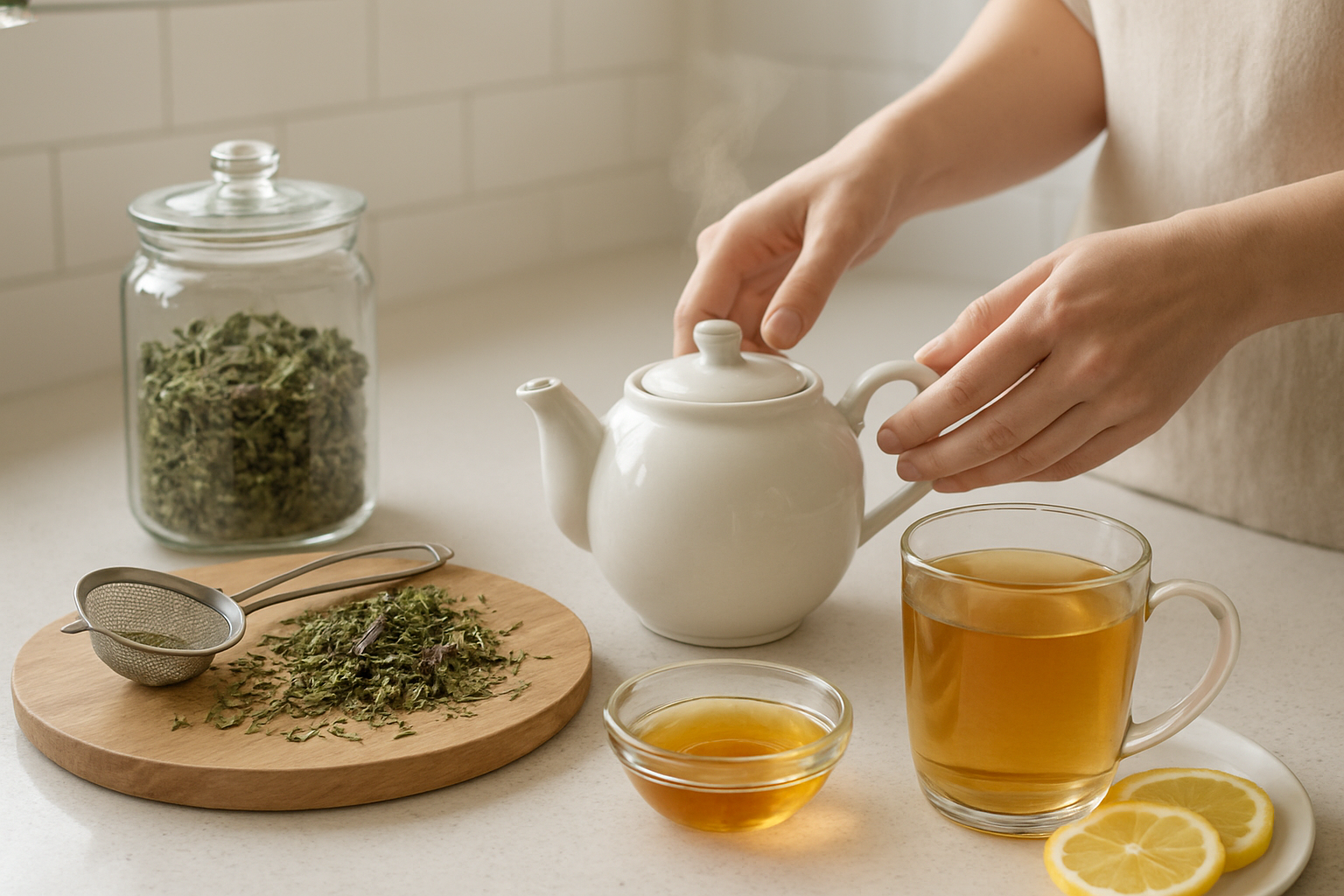
Proper Brewing Techniques for Maximum Benefits
Start with high-quality dried mallow leaves or flowers for the best therapeutic effects. Use one to two teaspoons of dried herb per cup of water, or double that amount if using fresh mallow. The key to extracting mallow’s beneficial mucilage compounds lies in the water temperature and steeping method.
Pour hot water (around 200°F, not quite boiling) over the mallow and cover immediately. Steep for 8-15 minutes to allow the mucilaginous compounds to fully release into the water. You’ll notice the tea takes on a slightly thick, almost gel-like consistency – this is exactly what you want. Strain through a fine mesh strainer, pressing the plant material gently to extract remaining liquid.
For cold brewing, which some herbalists prefer for maximum mucilage extraction, combine mallow with room temperature water and let it sit for 2-4 hours. This method produces a more viscous tea with higher concentrations of soothing compounds.
Recommended Dosage and Frequency
Adults can safely consume 1-3 cups of mallow tea daily. Start with one cup to assess your body’s response, especially if you’re new to herbal teas. Each cup should contain 1-2 teaspoons of dried herb.
For acute conditions like sore throat or digestive upset, drink small sips throughout the day rather than consuming large amounts at once. This approach provides consistent relief while allowing your body to process the herbs gradually.
Children over 12 can have half the adult dose, while younger children should only consume mallow tea under professional guidance. Pregnant and breastfeeding women should consult healthcare providers before regular consumption.
Best Times to Drink for Optimal Results
Morning consumption on an empty stomach maximizes absorption and provides digestive support throughout the day. The mucilaginous properties create a protective coating in the digestive tract, which works best before meals.
For respiratory issues, drink warm mallow tea in the evening before bed. The soothing steam combined with the herb’s anti-inflammatory properties can ease nighttime coughing and throat irritation.
If using mallow tea for urinary tract support, consume it between meals when your stomach isn’t processing food. This timing allows the herbs to work more directly on the urinary system.
For stress relief and relaxation, enjoy mallow tea 30-60 minutes before bedtime. While not strongly sedative like chamomile, mallow’s gentle properties can support your wind-down routine.
Enhancing Flavor with Natural Additives
Mallow tea has a mild, slightly sweet taste with an earthy undertone, but some people find it bland. Honey pairs exceptionally well, adding sweetness while contributing its own antimicrobial properties. Add honey after the tea cools slightly to preserve its beneficial enzymes.
Lemon juice brightens the flavor profile and adds vitamin C, creating a more refreshing beverage. The citrus also helps preserve the tea if you’re making larger batches.
Ginger root complements mallow’s soothing properties while adding a warming spice. Add fresh ginger slices during brewing, or stir in a pinch of ground ginger after straining.
For respiratory support, combine mallow with peppermint or eucalyptus leaves. These additions create a more potent blend for throat and chest congestion while improving taste.
Chamomile flowers make an excellent companion herb, enhancing mallow’s relaxation properties while adding a pleasant floral note. This combination works particularly well for evening consumption.
Potential Side Effects and Safety Considerations

Common Adverse Reactions to Watch For
Most people can drink mallow tea without any problems, but some folks might experience mild digestive upset when they first start drinking it. The most common reactions include nausea, stomach discomfort, or loose stools. These symptoms typically show up within a few hours of drinking the tea and usually go away on their own.
Some people notice their blood sugar levels drop slightly after drinking mallow tea regularly. While this isn’t necessarily dangerous for healthy individuals, diabetics should pay attention to how their body responds. The mucilage content in mallow can also slow down the absorption of other medications or supplements you might be taking at the same time.
Allergic reactions to mallow tea are rare but possible. Signs to watch for include skin rashes, itching, swelling around the mouth or throat, or difficulty breathing. If you have known allergies to plants in the mallow family (like hibiscus or okra), you might want to test a small amount first or skip mallow tea altogether.
Drug Interactions and Contraindications
Mallow tea can interfere with certain medications by affecting how quickly your body absorbs them. The plant’s natural mucilage creates a coating effect in your digestive system, which can slow down or reduce the absorption of oral medications. This is particularly important for time-sensitive medications like blood thinners, diabetes medications, or heart medications.
If you’re taking lithium for mood disorders, be extra careful with mallow tea. The plant has mild diuretic properties that could affect how your kidneys process lithium, potentially leading to dangerous levels in your bloodstream.
People taking medications for diabetes should monitor their blood sugar more closely when drinking mallow tea, as it may enhance the blood sugar-lowering effects of their medications. The same applies to blood pressure medications – mallow tea might amplify their effects.
| Medication Type | Potential Interaction | Recommendation |
|---|---|---|
| Blood thinners | Delayed absorption | Take 2+ hours apart |
| Diabetes medications | Enhanced effects | Monitor blood sugar closely |
| Blood pressure medications | Possible amplification | Consult healthcare provider |
| Lithium | Altered kidney processing | Avoid or use with medical supervision |
Special Precautions for Pregnant and Nursing Women
Pregnant women should approach mallow tea with caution. While there’s no concrete evidence that it causes harm during pregnancy, there simply isn’t enough research to guarantee its safety. The lack of comprehensive studies means we don’t know how mallow tea might affect fetal development or pregnancy outcomes.
The mucilage in mallow tea could potentially interfere with nutrient absorption, which is especially concerning during pregnancy when proper nutrition is critical. Pregnant women already need higher amounts of certain vitamins and minerals, and anything that might block absorption could be problematic.
For breastfeeding mothers, the safety profile is similarly unclear. We don’t know if compounds from mallow tea pass into breast milk or how they might affect nursing infants. Some herbal teas can alter milk production or composition, though this hasn’t been specifically studied with mallow tea.
Women who are trying to conceive should also be cautious, as some herbal remedies can affect hormone levels or fertility. While mallow tea isn’t known to cause fertility issues, it’s better to err on the side of caution during this important time.
When to Consult a Healthcare Professional
Talk to your doctor before adding mallow tea to your routine if you have any chronic health conditions, especially diabetes, kidney problems, or liver disease. These conditions can make you more sensitive to herbal remedies and their effects.
If you’re scheduled for surgery, stop drinking mallow tea at least two weeks beforehand. The tea’s potential effects on blood sugar and its interaction with anesthesia or other surgical medications aren’t well understood, so it’s safer to avoid it during this time.
Seek immediate medical attention if you experience any severe reactions after drinking mallow tea, including difficulty breathing, severe stomach pain, persistent vomiting, or signs of an allergic reaction. While serious reactions are uncommon, they require prompt medical care.
Parents considering mallow tea for children should always consult their pediatrician first. Children’s bodies process herbs differently than adults, and what’s safe for grown-ups might not be appropriate for kids.
Anyone taking multiple medications or supplements should discuss mallow tea with their pharmacist or doctor to avoid potentially harmful interactions. Your healthcare provider can help you figure out the best timing and dosing to minimize any risks while still allowing you to enjoy the potential benefits.
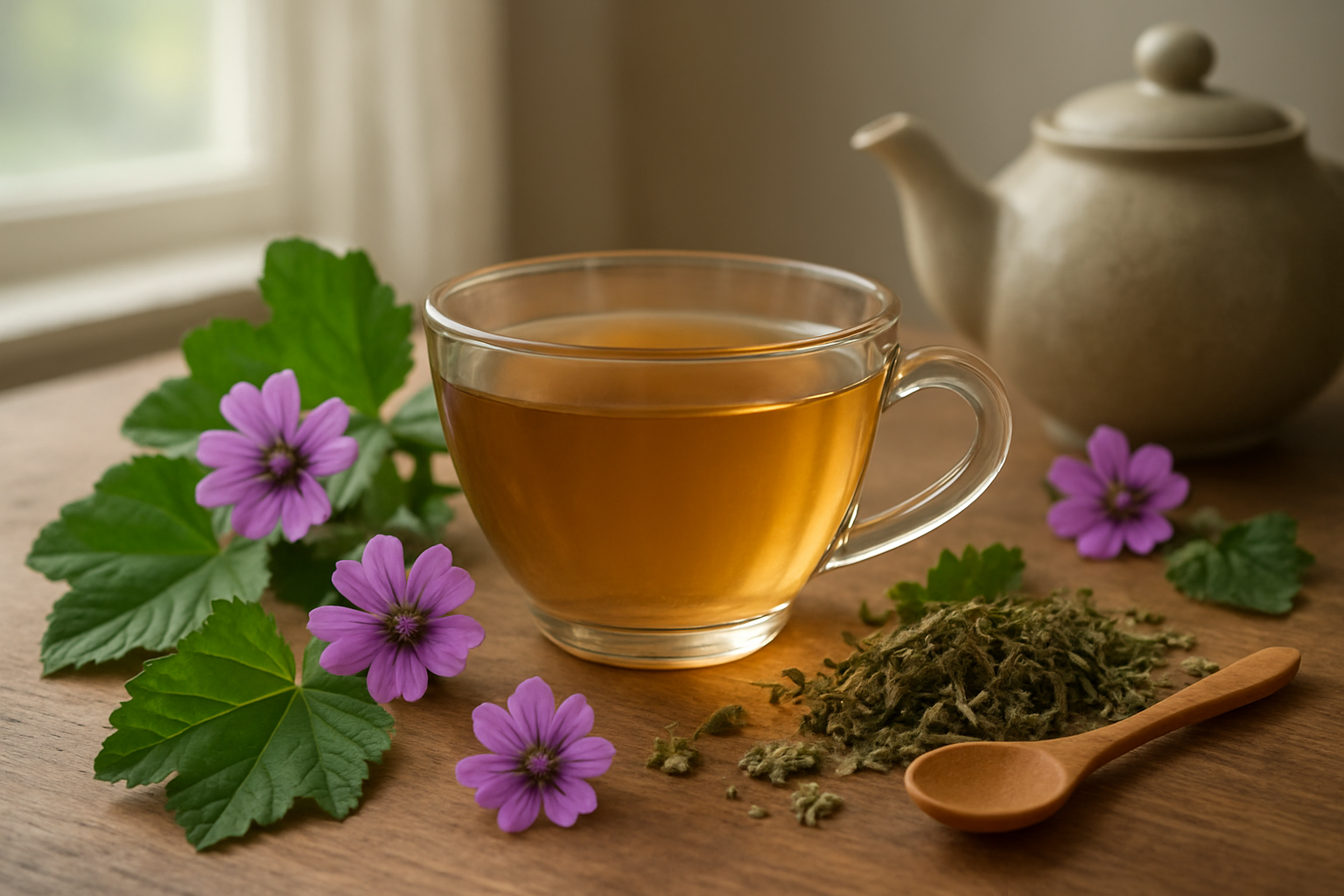
Mallow tea offers a gentle yet powerful way to support your health naturally. From soothing digestive issues and reducing inflammation to supporting respiratory health and healing skin conditions, this traditional herbal remedy has earned its place in modern wellness routines. The tea’s mucilaginous properties make it especially valuable for treating coughs, sore throats, and stomach irritation, while its anti-inflammatory compounds help with various internal and external applications.
Before adding mallow tea to your daily routine, remember that moderation is key. While generally safe for most people, those with plant allergies or taking medications should consult their healthcare provider first. Start with small amounts to see how your body responds, and always source your mallow tea from reputable suppliers. With proper preparation and mindful consumption, mallow tea can become a valuable addition to your natural health toolkit, offering both immediate relief and long-term wellness benefits.







